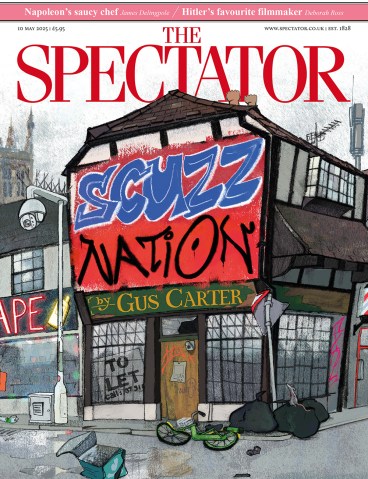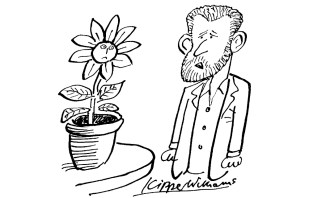
Olenka Hamilton has narrated this article for you to listen to.
In 1988, when I was six months old, my British father and Polish mother took me to meet my family in Krakow. My parents brought an extra suitcase filled with disposable nappies because such luxuries weren’t sold on the other side of the Iron Curtain. At the time, there was only one shop in Krakow that sold foreign goods, but my father was pleased to discover that a gallon of whisky could be bought for only $8.
He was a member of the House of Lords and, I’m told, we were trailed for our entire stay. Everywhere we went, a large Polski Fiat 125 driven by a suited man followed us. My parents always said that apart from drinking in people’s homes, there wasn’t a lot to do in Krakow back then. There were a couple of run-down cafés in the main market square but that was it.
Today Krakow is unrecognisable from the grey, drab and depressing place it was in the 1980s. That same medieval square –the largest of its kind in Europe – now has 400 cafés and restaurants on and around its streets. Many of these serve extremely good quality food and drink – more Bordeaux than Bulgarian Sofia – and they are all full of tourists. The hotels are excellent, the streets are clean and public transport is pristine and mostly punctual, unlike in Britain.
International headlines are full of stories about Poland’s economic revival and growing political importance. ‘Warsaw’s stock exchange benchmark index tops 100,000 points for first time,’ said one newspaper last week, while another reported: ‘Poland unveils plans to become major military power.’ The country’s economy has doubled over the past two decades, growing faster than neighbouring central European countries – and at twice the average rate of other OECD countries. Within the EU, it lies only behind Germany, France, Italy, Spain and Holland in terms of GDP, and is expected to overtake Britain in GDP per capita in the 2030s.
Tom Leach is a British businessman from the Midlands who bought his first property in Poland in 2003. He visited Poland on an Interrailing trip while at Oxford University and became so enamoured by it that he came back as soon as he had finished his degree. ‘I felt Poland had so much to offer – it seemed incredibly good value for money and I kind of assumed it would catch up relatively quickly with western Europe,’ explains Leach, who set up Leach & Lang, one of Poland’s first and best-known property consultancies. Poland was ‘a kind of Wild East back then, which made it fun starting up a business’, he says, noting ‘the strong work ethic, discipline and levels of education’ among its people. The business environment has professionalised considerably and become more transparent.
Many successful companies are foreign owned: ‘Such new “wealth” can vanish in days’
Leach’s instinct back in 2003 could not have been better. Poland joined the EU in 2004, which coincided with the rise in budget airlines. It made it easy and cheap for tourists to visit, and for Poles to go and work abroad. Billions of euros of EU money came flooding in. Poland was the only country in the bloc not to have a recession in 2008.
But many Poles consider their nation’s prosperity to be nothing more than a mirage. ‘A good businessman will make money in North Korea,’ says Matthew Kielanowski, a lawyer, former government adviser and avid Poland-watcher. He points out that many of the most successful companies are foreign owned: ‘Such new “wealth” can vanish in days, together with its owners.’ Less savvy businessmen, he says, are either cheated by the government or give up and leave, exasperated by the chaos: ‘The police and the courts are corrupt, and the tax system is the most complex in the world.’
‘Part of Poland’s investment appeal lies in the fact that it is not just reliant on one big city as is the case with many other central and eastern European countries,’ Leach explains. ‘Besides Warsaw, cities like Krakow, Wroclaw, Gdansk and Poznan (with populations of at least half a million each) are able to attract investors in their own right.’ Since the beginning of the Ukraine war, an influx of wealthy Ukrainians, American military families and international media have brought more money into the country.
Ewa Kowynia is in her sixties and works as a German to Polish translator of literature. She has lived in Krakow her whole life and wonders who Poland’s newfound prosperity is serving. ‘Local Krakow is dead,’ she says. A cup of coffee now costs around 20 zloty (the equivalent of £4), which is prohibitively expensive for most Poles. As a result, the cafés and restaurants are filled with tourists and wealthy Ukrainians but few locals. Shops sell Polish pottery at prices only foreigners can afford. Both Kowynia and Kielanowski are scathing about Poland’s supposed revival. ‘Poland’s so-called success is an optical illusion created by EU policy makers in cahoots with the Polish government,’ says Kielanowski. ‘It serves to divert scrutiny from western Europe’s huge problems, and to deliver praise and boost the morale of the Polish people. Poland is being prepared to be used as a buffer zone, if not a meat grinder, in any future conflicts in the region.’
Poland is suddenly more ‘acceptable’ to global political elites, he says, thanks to the election of former EU chief Donald Tusk, along with his Oxford-educated foreign minister Radek Sikorski, ‘the only Polish politician recognisable in the media abroad’. Prior to Tusk’s election as Prime Minister in 2023, the country had been ruled by the Law and Justice party, which sought to promote traditional family values, while also trying to pare back more liberal elements in the country’s judiciary. Politicians in Brussels saw this as an attack on the rule of law and began cutting off EU funds, while imposing fines of €1 million a day. Poland was often treated as something of a rogue state within the European Union.
Tusk only beat Law and Justice thanks to a coalition among left-wing parties, so desperate were they to remove a popular conservative government. Law and Justice still received the highest number of votes of any party in 2023. In just over a week, the country will vote again, this time for the president, the second most powerful politician in Poland. While the prime minister oversees the day-to-day running of government, the president has a veto power and acts as the commander-in-chief, a more powerful position since war came to the country’s eastern border.
The presidential election is being fought between Tusk’s candidate Rafal Trzaskowski and conservative independent candidate Karol Nawrocki, supported by the Law and Justice party (he is unable to officially stand for the party because he is head of the commission to prosecute historic fascist and communist crimes). During the election campaign, there has been plenty of talk of more military spending, much of which is covered excitedly in the western press.
Inside Poland, the presidential election is seen as something of a referendum on the EU. Unsurprisingly, Tusk wants a stronger relationship with Brussels while conservatives believe that the war in Ukraine has demonstrated the importance of national sovereignty. Poland’s politics can still confound western observers. Tusk’s progressive candidate, for example, argues for further deregulation and cuts to welfare, while the conservatives are the ones who want to keep Poland’s legacy of welfare intact.

Many Poles believe that the country is losing a certain vitality, particularly in the way children are raised. ‘The only great thing about communism,’ says Kielanowski, ‘was that the education was excellent. There was compulsory, free education at every level. Huge curricula covering literature, music, sports, arts for everyone.’
He laments that the current education minister, Barbara Nowacka, is a left-wing atheist and pro-abortion feminist. She has started reducing the amount of classical literature and history taught in schools, while halving religious studies lessons and increasing sex education. The latter has been particularly unpopular with the socially conservative population who, like Kowynia, a grandmother of five, long for what she calls a more ‘backward’ Poland.
Regardless of who wins the presidential election – which remains a close, evenly matched race – Poland’s political significance in Europe is assured, thanks to its size and strategic location. While domestic politicians often stoke fears of Russia and emphasise military spending, the reality is that Poland has, in many ways, benefited from the war. Though peace is obviously preferable, a prolonged conflict is unlikely to pose any serious threat to the country.
From a statistical standpoint, Poland has been on an upward trajectory for more than two decades. Since Tusk’s coalition assumed power, there hasn’t been a dramatic economic revival so much as a political reset – one that has made Poland more palatable to western leaders. Whether this shift genuinely benefits the average Pole, however, is another matter.








Comments